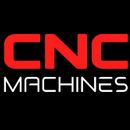11 Reasons How AI Will Improve Manufacturing

11 Reasons How AI Will Improve Manufacturing
Artificial Intelligence (AI) is transforming industries worldwide, and manufacturing is no exception. As the manufacturing sector continues to embrace AI, companies are discovering numerous ways in which this technology can enhance operations, boost efficiency, and drive innovation. Below, we explore 11 compelling reasons why AI will improve manufacturing.
1. Enhanced Production Efficiency
AI can analyze vast amounts of data from production lines in real-time, identifying inefficiencies and bottlenecks. By implementing AI-driven solutions, manufacturers can optimize production schedules, reduce downtime, and improve overall efficiency.
- Predictive Maintenance: AI-powered predictive maintenance can foresee potential equipment failures before they occur, allowing for timely interventions that prevent costly downtime.
2. Improved Quality Control
AI can significantly enhance quality control processes by detecting defects and inconsistencies in real-time. Machine learning algorithms can analyze visual data from cameras and sensors, identifying flaws that may be missed by human inspectors.
- Automated Inspection: AI-driven inspection systems can assess parts and products at a faster rate and with greater accuracy than traditional methods, ensuring consistent quality.
3. Cost Reduction
AI helps manufacturers reduce costs by optimizing various aspects of the production process. From minimizing waste to reducing energy consumption, AI-driven insights can lead to significant savings.
- Resource Optimization: AI algorithms can optimize the use of raw materials, reducing waste and lowering production costs.
4. Supply Chain Optimization
AI can revolutionize supply chain management by providing greater visibility and control over every stage of the process. By analyzing data from suppliers, logistics, and production, AI can predict demand, manage inventory, and optimize supply chain operations.
- Demand Forecasting: AI-powered demand forecasting can predict customer needs with high accuracy, allowing manufacturers to adjust production and inventory levels accordingly.
5. Enhanced Product Design
AI can assist in the design process by analyzing vast datasets and generating new design ideas. This can lead to the development of innovative products that meet market needs more effectively.
- Generative Design: AI-driven generative design software can create optimized designs based on specific criteria, such as material usage, weight, and cost.
6. Greater Flexibility in Production
AI allows for more flexible manufacturing processes, enabling companies to quickly adapt to changes in demand or production requirements. This flexibility is particularly valuable in industries where product customization is essential.
- Smart Manufacturing: AI-driven smart manufacturing systems can quickly adjust production lines to accommodate new products or changes in production volumes.
7. Enhanced Worker Safety
AI can improve worker safety by monitoring working conditions and identifying potential hazards in real-time. Automated systems can also take over dangerous tasks, reducing the risk of workplace accidents.
- Robotic Process Automation (RPA): AI-powered robots can handle hazardous tasks, such as welding or heavy lifting, reducing the risk of injury to human workers.
8. Faster Decision-Making
AI can analyze data and provide insights much faster than traditional methods, enabling quicker decision-making. This speed is crucial in a fast-paced manufacturing environment where timely decisions can impact productivity and profitability.
- Real-Time Analytics: AI-powered analytics tools provide real-time insights into production processes, allowing managers to make informed decisions on the fly.
9. Better Customer Service and Customization
AI can help manufacturers better understand customer preferences and trends, enabling them to offer more personalized products and services. This level of customization can enhance customer satisfaction and loyalty.
- AI-Driven Customization: AI algorithms can analyze customer data to identify preferences and tailor products accordingly, offering a higher level of customization.
10. Energy Efficiency
AI can optimize energy usage in manufacturing plants by analyzing consumption patterns and identifying opportunities for savings. This not only reduces costs but also supports sustainability goals.
- Energy Management Systems: AI-driven energy management systems can optimize power usage across the production facility, reducing energy waste and lowering costs.
11. Innovation and Competitive Advantage
By embracing AI, manufacturers can stay ahead of the competition by continually innovating and improving their processes. AI-driven insights can lead to the development of new products, improved processes, and a stronger market position.
- Continuous Improvement: AI enables continuous improvement by constantly analyzing data and providing actionable insights, helping manufacturers maintain a competitive edge.
Conclusion
AI is set to revolutionize the manufacturing industry by improving efficiency, reducing costs, enhancing product quality, and driving innovation. As AI technologies continue to advance, manufacturers that embrace these tools will be better positioned to meet the demands of a rapidly evolving market and secure a competitive advantage. Whether it's through optimizing supply chains, enhancing worker safety, or driving product innovation, AI is the key to the future of manufacturing.


